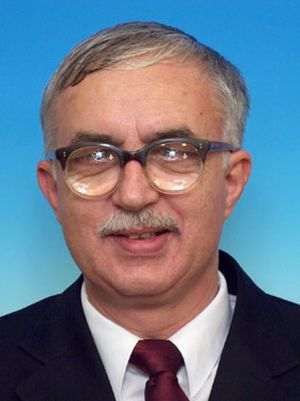The political parties in the European Union received in the period 2019-2022 financial donations of 941 million euros, but for 664 million euros of that amount, the data regarding the sponsors is non-transparent, according to the final results of the international investigation, published yesterday by the website Follow the Money. The lack of transparency is greatest in powerful Western European countries such as Germany and France, with EU member states in Central and Eastern Europe being far more transparent about the identity of political party sponsors, the source said.
The international investigation coordinated by Follow the Money analyzed the financial income for 231 political parties that are likely to send at least one MEP to the elections of June 6-9, 2024. The 231 political parties analyzed in the 27 EU member states they received 941 million euros in donations between 2019 and 2022. Of this amount, 664 million euros (70% of the total donations) are not clear who sent the money, as the names of the sponsors are not public.
In the first place regarding the non-transparency of information regarding financial sponsors are the parties in Germany where the journalistic investigation found that 78% of donations are anonymous. The lack of transparency is striking in Germany, as from 2019 to 2022, parties in that country received 641 million euros in donations. Of this amount, 495 million euros have secret or anonymous donors. For the 641 million euros, the annual financial reports of all parties show that 329 million euros come from companies and private citizens, and 312 million euros from politicians. However, it is impossible to determine how much of the euro495 million of undetermined origin comes from a politician belonging to a party, or individuals and companies, as it is not clear in the records of individual donations whether a payment is a donation or a politician's contribution .
For example, the right-wing populist party Alternative fur Deutschland reported receiving 6.4 million euros in donations in 2022, but public records show the names of donors who funded only 1.3 million euros of the amount received, showing a shortfall of information for the remaining 5.1 million euros, i.e. 80% of the financial donations received.
The quoted source shows that the situation is the same in France and Belgium, where not a single name of the donors is made public. The situation in France is explained by the national authority for auditing the accounts of political parties through the GDPR regulation.
"Information relating to the identity of a person who makes a financial donation to the benefit of a political party is likely to reveal his political views. The disclosure of the name of a donor would therefore violate the confidentiality of his private life", says an e-mail sent by the French authority to the quoted source.
This means that French citizens practically do not know who is behind the euro47 million that went to 11 national parties over four years (2019-2022), and this figure is only the tip of the iceberg, as many small parties regional and local receive a lot of donations, the total amount of anonymous donations in France being in reality three times higher, according to government data cited by Follow the Money.
Another non-transparent state regarding financial donations to political parties is Spain, according to the international investigation led by the cited source. The names of the donors are only published if the individual donation exceeds 25,000 euros, but the Spanish auditors and political parties confirmed to the group of journalists that no donation has been made over this threshold since 2015, and there is even a loophole to circumvent this rule, a loophole that shows that for persons affiliated to a political party who donate over 25,000 euros, the rule regarding the transparency of the donation does not apply. That is why many political leaders and members or sympathizers of Spanish political parties donate millions of euros to the respective formations, keeping their anonymity. The cited source shows that the PSOE, the social democratic party led by Prime Minister Pedro Sanchez, annually collects more than 11 million euros only from financial sponsorships, without revealing the names of the real donors.
In contrast, Central and Eastern European countries have a very high transparency regarding the financing of political parties, Follow the Money also shows, with the Baltic countries being at the top of this transparency. For example, in Estonia the names of the nearly 50,000 members of the country's 13 parties and the monthly dues they pay are made public. Donations are public, regardless of whether they are millions of euros, hundreds of thousands of euros, tens of thousands of euros or 2 euros. Donor name lists or the amounts given are published quarterly.
The cited source shows that the situation is similar in most Central and Eastern European countries, where annually all donations and their donors are published, even if they are often buried deep in financial reports and scanned in various positions. However, the members of the investigative team show that transparency in the respective countries is not equivalent to the absence of problems related to influence peddling by wealthy donors or payments made in exchange for favors or misuse of donated funds.
In this sense, the negative example of Mircea Drăghici, former PSD treasurer, who was sentenced to two years in prison, after admitting that he used part of the public subsidies to purchase movable and immovable goods for his own use, is presented .
Draghici used public funds received by his party to pay for luxury vacations in Bali, Singapore, the Emirates or the Dominican Republic for his family and neighbors.
That is why, the quoted source shows that at the European level, trust in politicians and political parties is low, with citizens ranking political parties as the most susceptible to corruption, far ahead of private companies, financial institutions and the public sector. According to the Eurobarometer on citizens' attitudes towards corruption in the EU in 2023, 6 out of 10 European citizens believe that the phenomenon of corruption is widespread among political parties. The lack of supervision and transparency regarding the financing of political parties in the EU member states also contributes to this negative result.
The cited investigation was carried out by a European consortium of journalists who collected and analyzed 1,200 financial reports and approximately 500,000 individual donations, shedding light on the financial income of political parties. The analyzes were carried out in the 27 states of the European Union.



















































